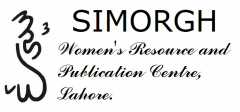MARITAL LAW & CUSTOMARY PRACTICES VOLUME: IV
Category
BAYAN, LEGALAbout This Project
This issue of bayan examines laws and social practices relating to women’s issues vis a vis marriage, in particular, to women’s right to choice in marriage. As choice is linked to decision-making, and the latter entails the expression of autonomous agency, this issue is directly linked to that of power. Not power in the abstract, or even power exercised through sanction of force; but power as vested in an individual’s ability to participate directly and actively as an agent in the routine events that make up the course of her or his daily life; to make choices that intervene in the course of events to give direction to the future. In a world that places a high value on democratic freedoms, and where laws and judicial practice claim that they are based on the premise that by definition, all citizens, regardless of gender, class, caste, religious or any other difference are deemed equal before the law, this should be a simple enough matter. But the reality is much more complex, and issues related to women’s agency are not so easily resolved. Laws pertaining to marriage are closely linked to the demands of patriliny within the patriarchal matrix. They are embedded in issues pertaining to ownership of property and inheritance; to the maintenance of class/caste boundaries and the control of women’s reproductive and productive labour. This has resulted in contradictions not only within the field of personal law between dominant social interests and the imperatives of justice, but also between the laws and judicial practice that itself tends to be informed by cultural biases.
Price 250 Rs

